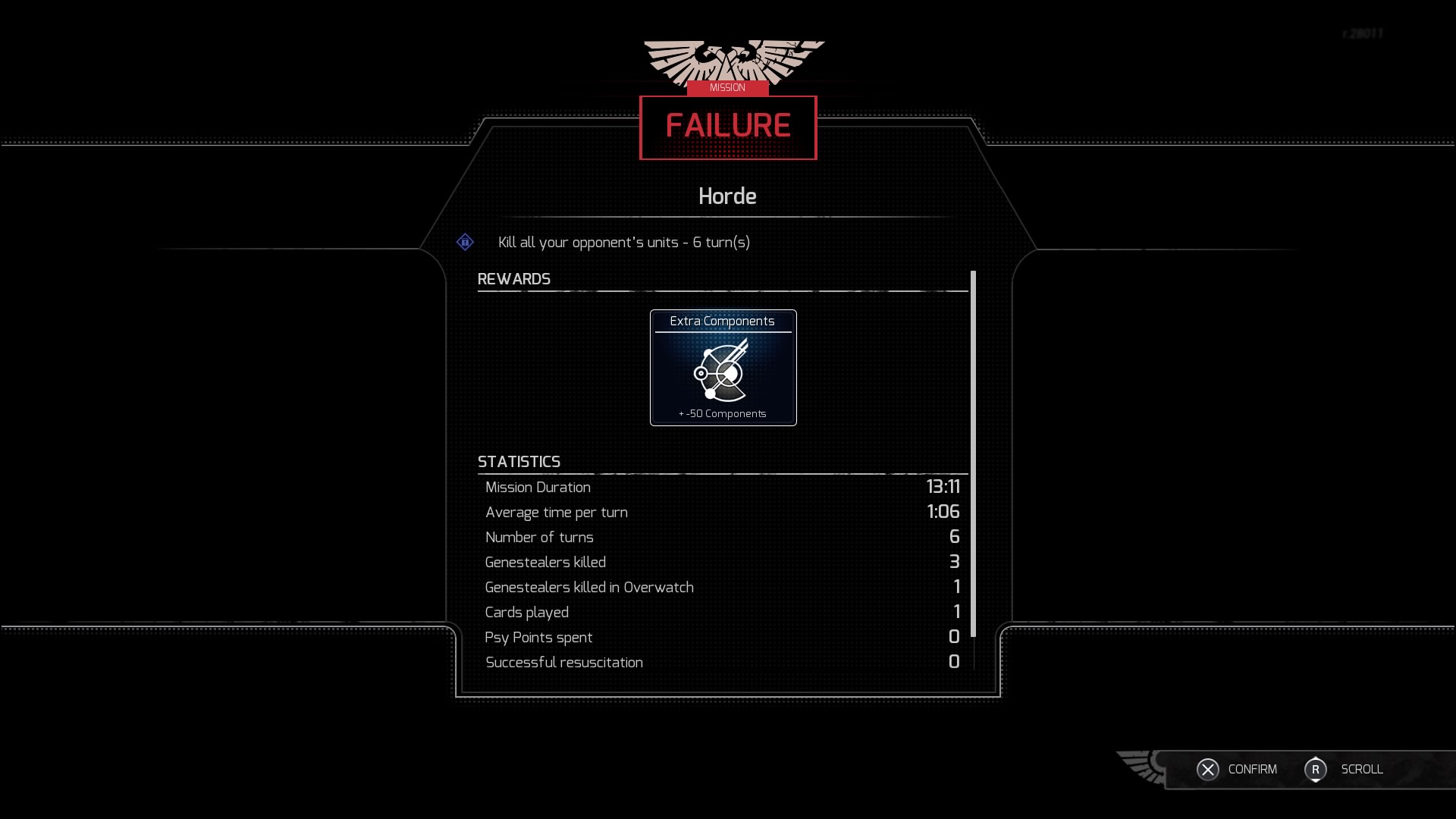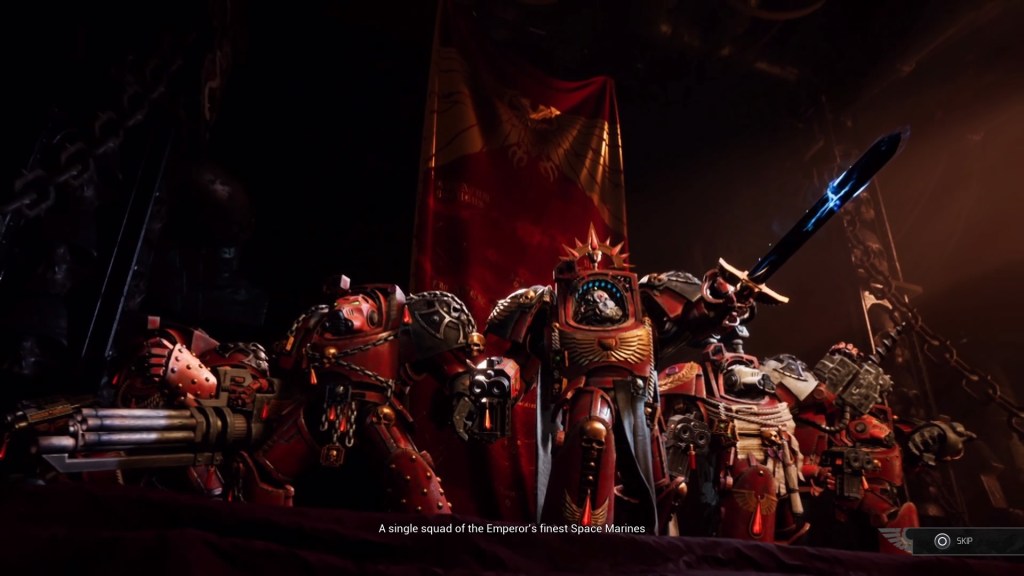It’s been said that in the vacuum of space, no one can hear you scream. Now whether you’re howling in fear or out of sheer boredom, that’s a whole different matter entirely. In the tabletop-centric world of Games Workshop’s Space Hulk, quite frankly either one could apply. The franchise has seen numerous virtual adaptations, dating back as far an MS-DOS incarnation released in 1993. It’s now time for Cyanide Studios to take their best whack at the interstellar adventure in Space Hulk: Tactics. Is this finally the adaptation that takes Warhammer 40,000 mainstream? Just kidding. I couldn’t even write that with a straight face.
Destined for Destruction
Humanity is once again on the brink of destruction, and there’s only once force left that can save it from total annihilation. Yeah, I know you’ve heard it a thousand times before, but this time the Marines are polite while they kick ass. That’s how you know they mean business. The main opposition, the Genestealers, are essentially a hybrid of every type of alien found in popular media. Having graduated from being mere quadrupeds, these nasty little bastards have a sextet of appendages, complete with fangs and razor-sharp claws. Simply put, you wouldn’t want to run into these maniacal little bastards in an alley after dark.
The “stealer” part of the Genestealer name is derived from the fact that the faction overruns anyone they encounter, defeats them handily, repurposes their resources and technology, and then turn their victim into part of their Brood Mind before moving onto their next victim. At this point, humanity is the next red meat on the menu. Thankfully the lone remaining squad of Marines are on hand to fend off the invading mess of a vessel. Their only chance at success, not to mention survival, is to take the fight directly to the enemy and board their franken-ship.
People who’ve played the board game that inspired this title will be able to note similarities and nods to the original almost immediately. For one, players have to choose between two different campaigns, one featuring the Marines and the other, the Genestealers. On the surface this might seem like a simple binary choice, but it’s actually a direct reference to the tabletop incarnation, which is a two-player game where each participant is also forced to pick opposite sides of a battle.
Pick Your Poison
As you might imagine, there are sizable differences between the two phylum of combatants. Marines are big, hulking masses of muscle, armor, and artillery. They are about as nimble as an elephant and are damn near the literal embodiment of a “bull in a China shop.” Navigation is slow and plodding, utilizing only four action points per unit’s turn, and emphasizing the use of ranged firearm combat. On the opposite end of the spectrum, aliens are overwhelmingly numerous and blindingly quick. These diabolical little beasts specialize in melee-centric combat.
Combat plays out in the cramped corridors of the Hulk, which in and of itself puts the human protagonists at a rather sizable disadvantage. Enemies can swiftly scamper out from seemingly anywhere, at a rate that’s far more aggressive (an additional two action points per turn) than the heavily-armed man-tanks. Thankfully Marines also have a new card system that allows commanders to augment the capabilities of a single troop during their next move. Cards can also be consumed in order to gain extra action points during that turn. Each character has their own set of enhancements, which can be equipped and modified in the pre-match lobby.
A perfect example of the cards in action would be aiding a melee-challenged Terminator. A boost from a card bumps the odds of connecting on a close-quarters strike from 33% to a rock-solid 80%. In another tip of the hat to its board game lineage, the actual dice rolls and their outcomes are also shown on the right side of the screen for every interaction. You can actually see how the enhancement card changed the calculation process first hand. Did they need to do this? Not really. However, it’s little touches like this that further enhance the appeal of this niche, yet charming tactics experience. If nothing else, understanding how the dice-roll outcomes are decided might actually pave the way for players to migrate from the console to the tabletop. But who am I kidding? I think we both know better.
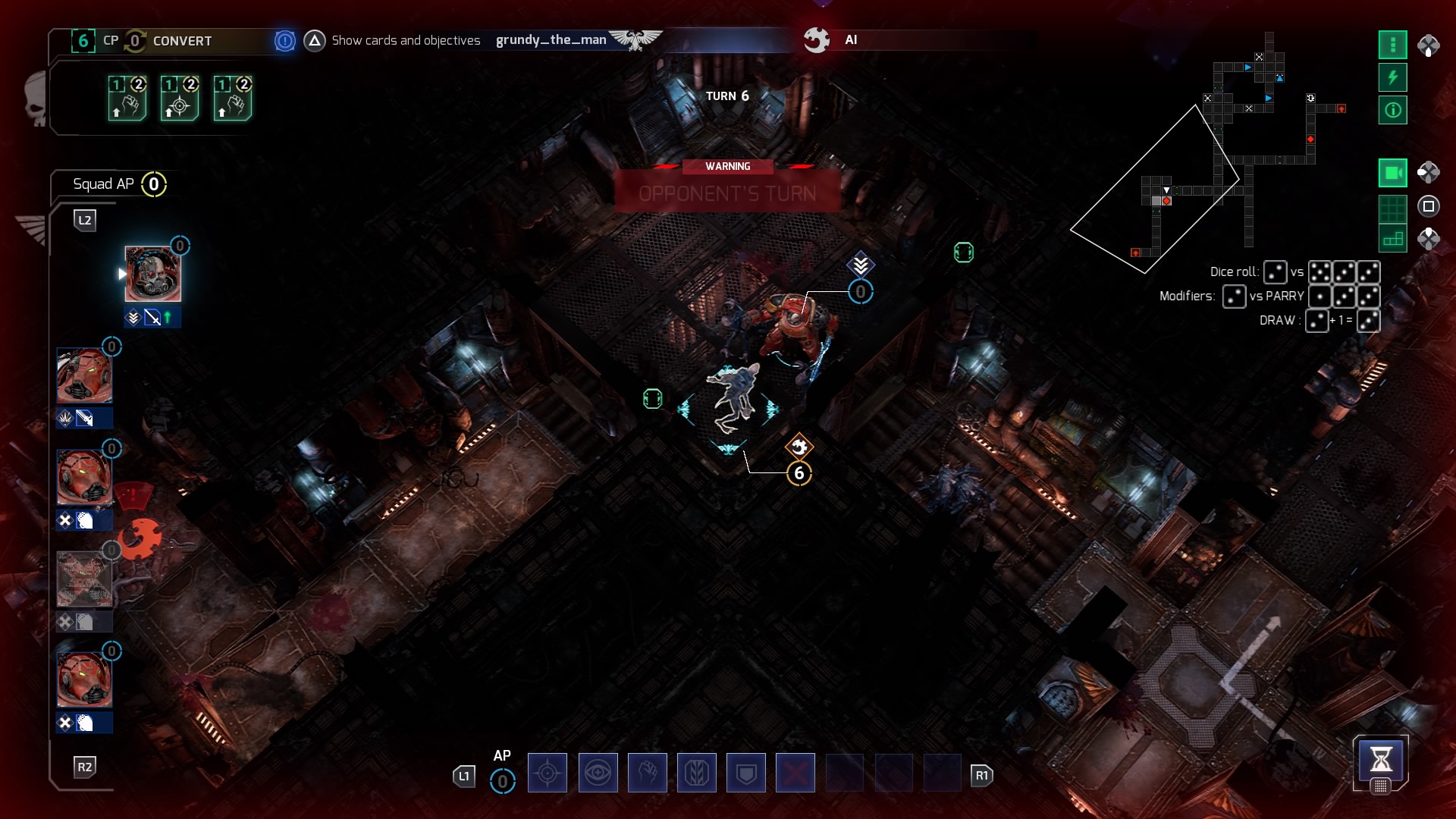
Patient or Plodding?
As anyone who’s ever started a tactics game knows, this isn’t something to be played on a tight time schedule. I’m pretty sure the quickest match I played clocked in at just south of fifteen minutes, and that was an outlier. Expect to have matches chew up a considerable chunk of time thanks to the gameplay’s plodding pace. This is a byproduct of the slightly unwieldy controls and damn-near-useless first-person camera. It won’t take long before you cast aside the FPS perspective entirely, in favor of the standard top-down, isometric perspective. Personally, I couldn’t find a reason for the first-person mode to even exist. If anything, it actually made seeing the entire battlefield more difficult than using the default camera.
Another reason that gameplay runs at a snail’s pace is the constrictive level design, which in turn impacts AI behaviors. Many of the hallways are claustrophobically structured in a way that only one unit can proceed forward at a time. Characters lack the ability to step over/past the lead unit, resulting in an epic logjam. The difficulties brought on by blockages extend to both offensive and defensive shooting. Who knew that having a teammate’s back is as literal it sounds, because you can’t aim around them? Unfortunately, this meat parade queues up combatants to be slaughtered in quick succession. Unless a healthy buffer of several spaces is in place, the Genestealers will hack and slash their way through the entire lineup in a single turn. It isn’t a pretty picture.
The overall lack of mobility also renders aggressive offense a precarious notion at best. Unless the objective is to reach a certain location on the map, most battles result in the squad of five hunkering down in a perpetual defensive position. Why bother to take the battle to the opposition when it’s far more effective to sit tight and await the onslaught? I won far more matches playing it conservative than I did going on the offensive. And what does this strategy lead to? Boring matches. LOTS of boring matches.
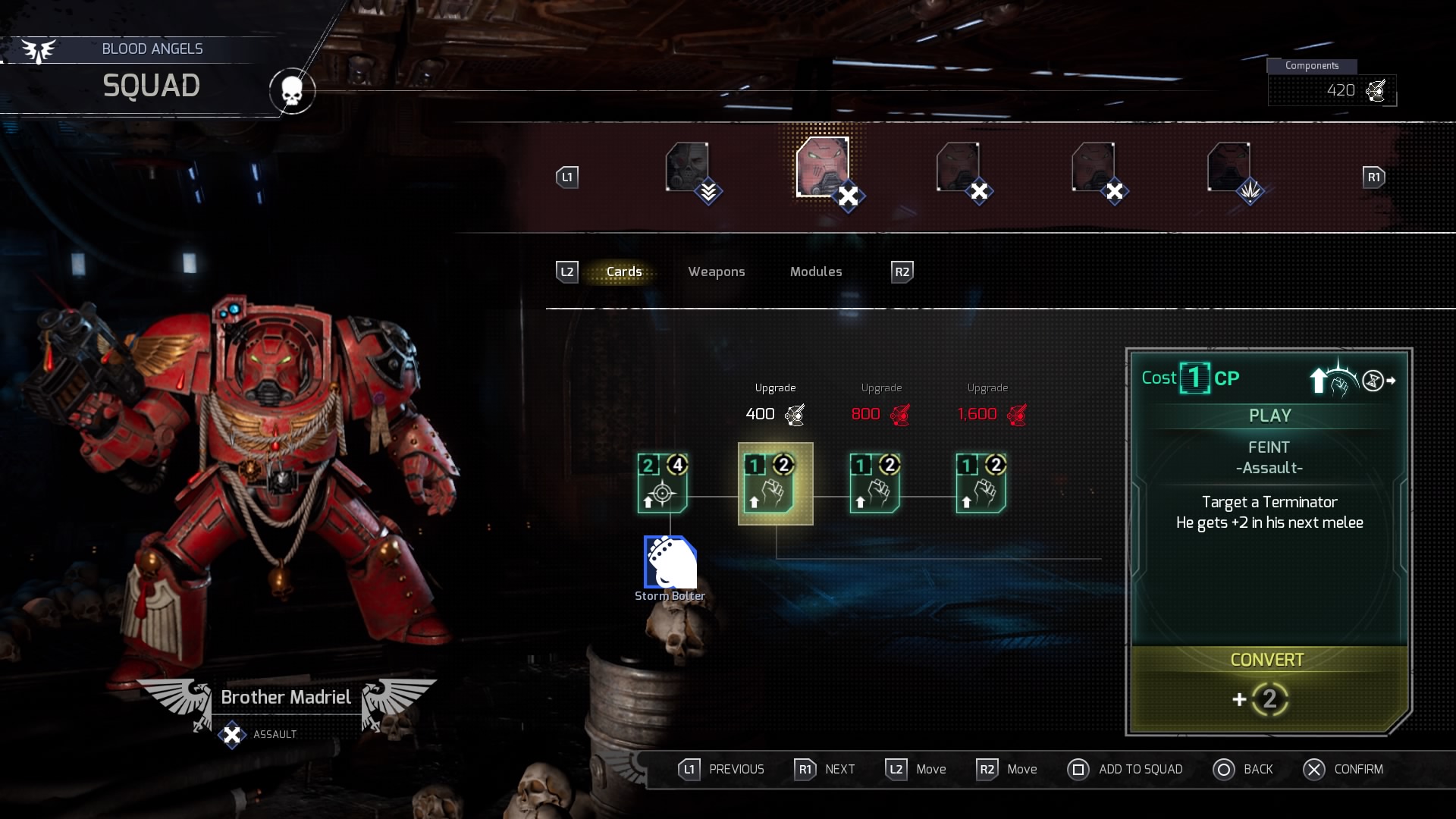
Thankfully the high points of the campaign’s combat and volumes of lore provided between missions more than make up for the slower matches. Plot points are heavily steeped in the Warhammer 40,000 universe, so be ready to be confused by most conversations if this is your entry point to the franchise. As if two unique campaigns weren’t enough, there’s also fully-featured multiplayer and mission designer modes. You could say that there’s a little something for everyone, as long as you are a loyal Warhammer 40K zealot.
While it isn’t going to be blowing the doors off of the tactical strategy genre, Space Hulk: Tactics is a perfectly adequate game. Thanks to a solid combat engine, good writing, twin-headed campaign, and level designer, players will certainly be getting their monies worth for the forty-dollar price tag. Now gear up and get back out there, brother. You’ve an entire species to defend!
Space Hulk: Tactics review code provided by publisher. Version 1.00 reviewed on a standard PlayStation 4. For more information on scoring please see our Review Policy here.
-
Tactical strategy mechanics are solidly designed
-
Lore, lore everywhere
-
Unlocking new loot is an extremely gratifying loop
-
Why must every hallway be so goddamn narrow?
-
Defensive capabilities limited by corridor-heavy map design
-
Letting the battle come to you is boring as all hell
Space Hulk: Tactics Review
-
Space Hulk: Tactics Review
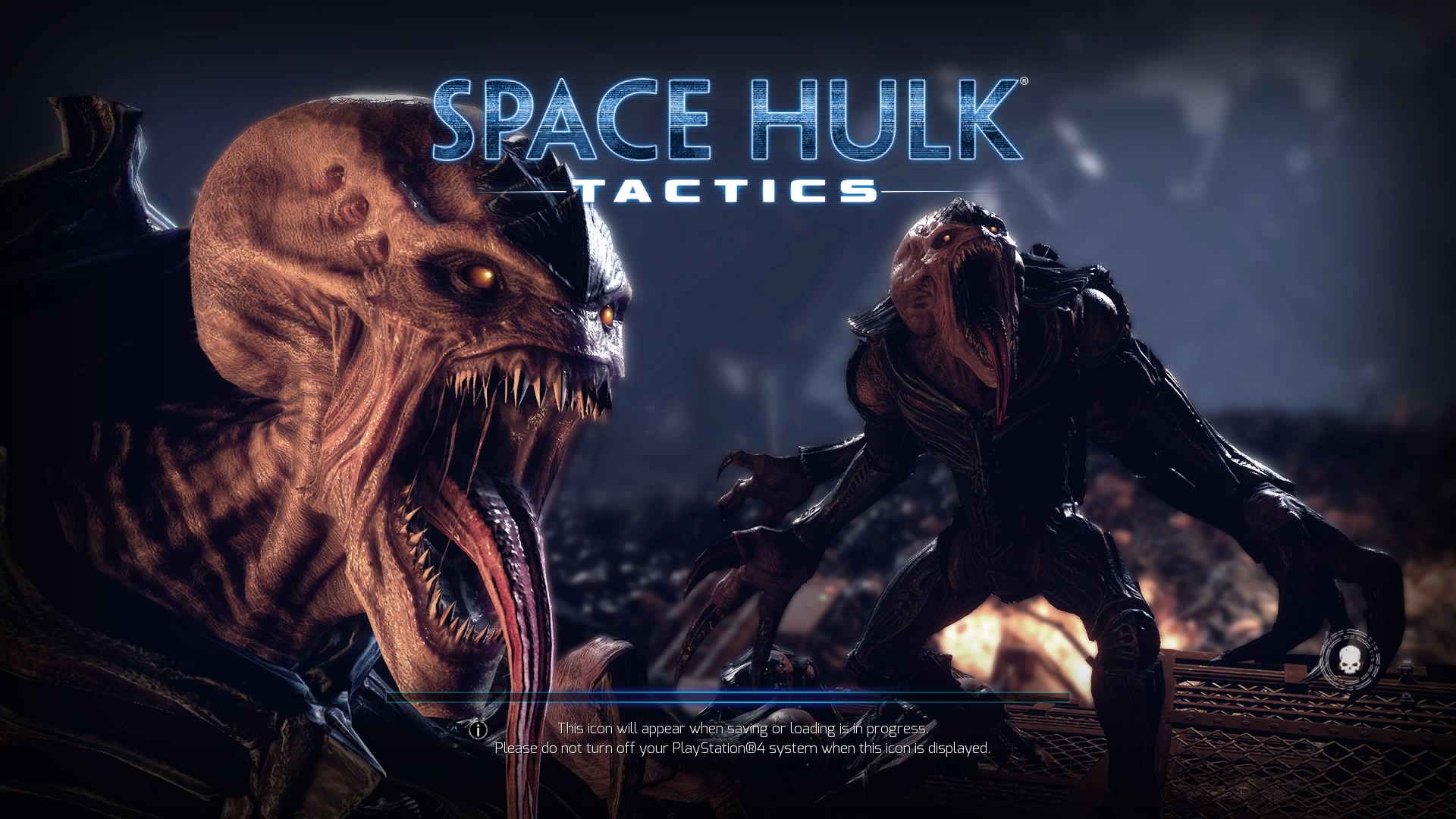
-
Space Hulk: Tactics Review
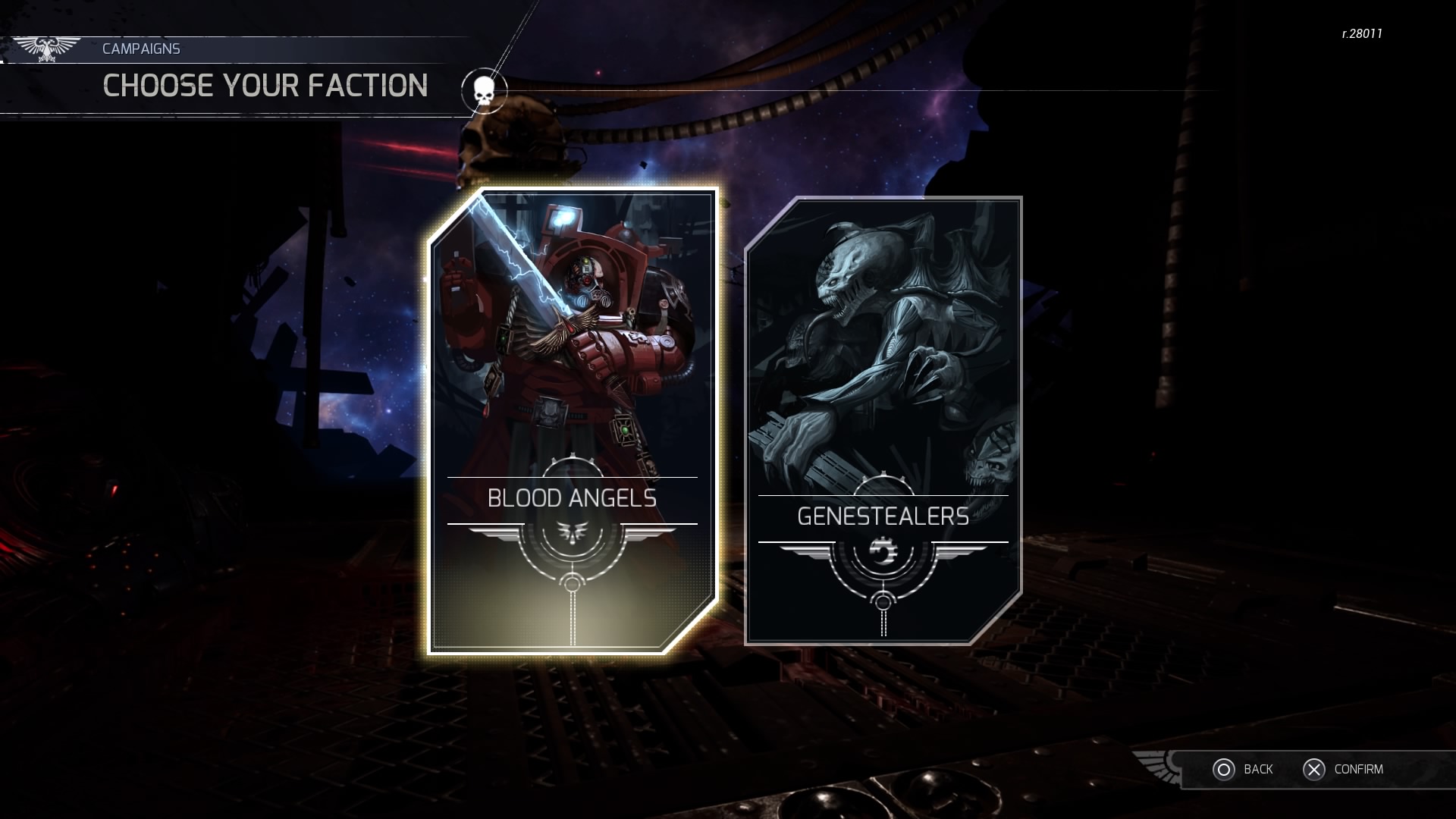
-
Space Hulk: Tactics Review

-
Space Hulk: Tactics Review
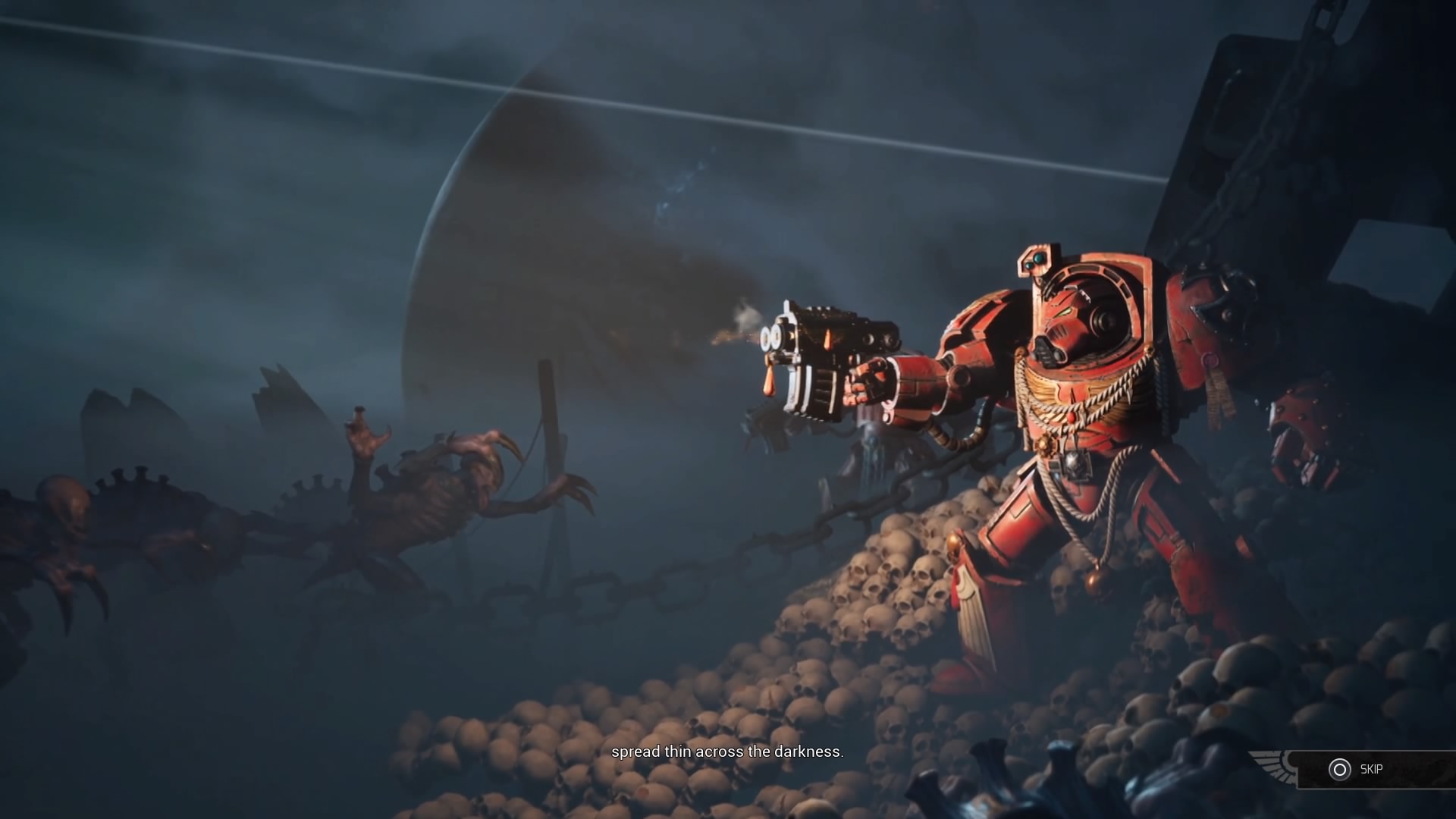
-
Space Hulk: Tactics Review
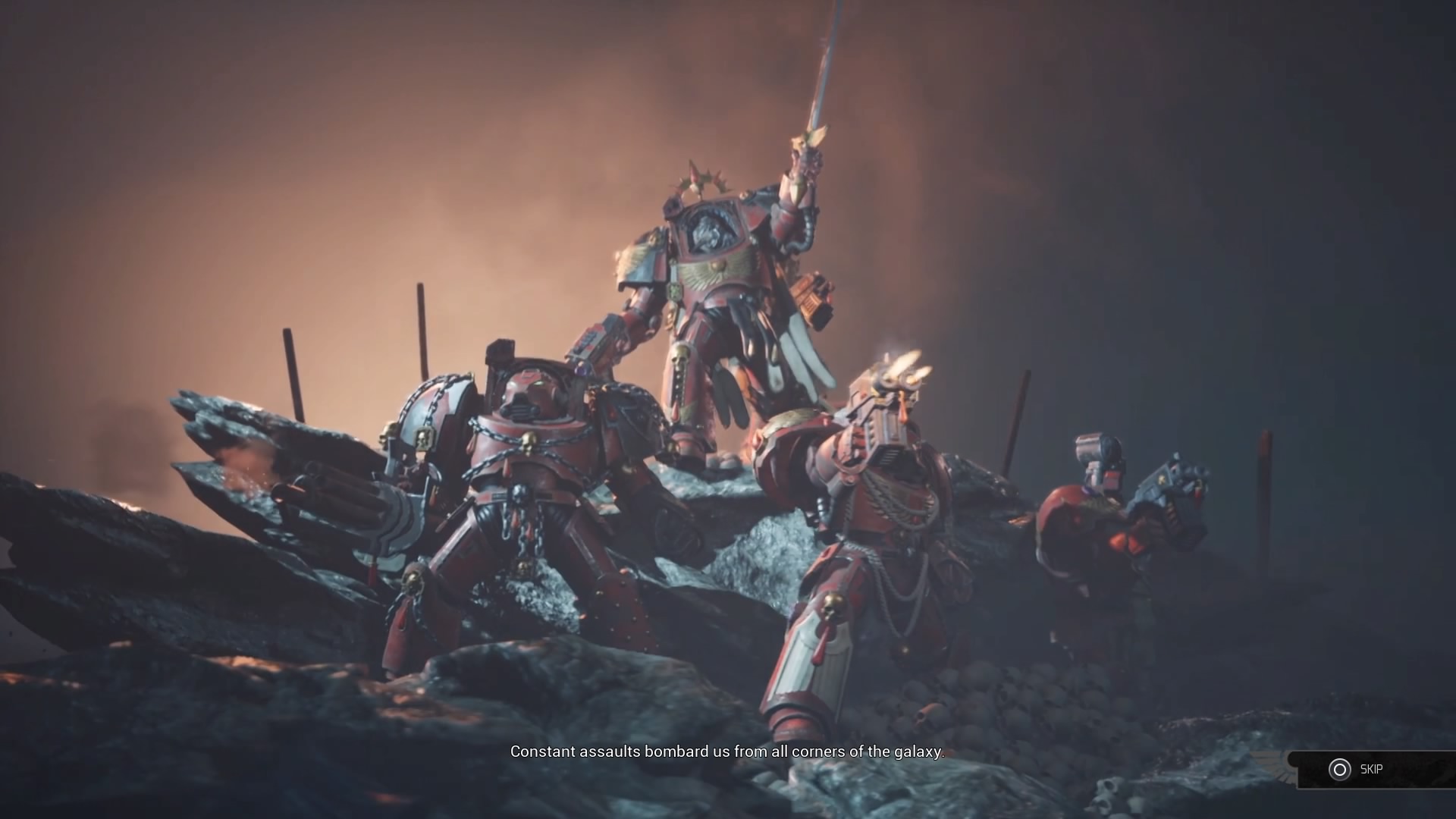
-
Space Hulk: Tactics Review
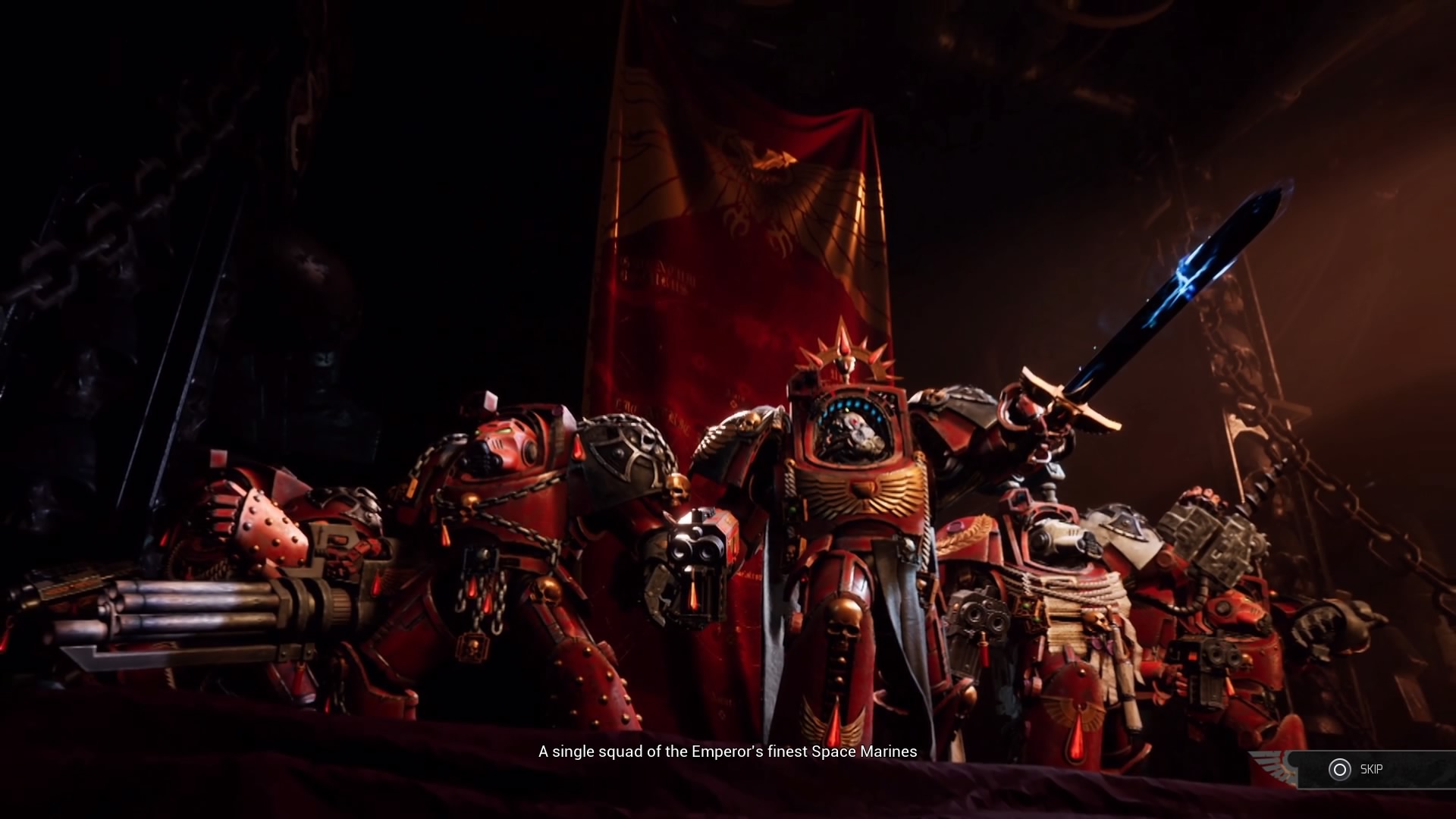
-
Space Hulk: Tactics Review

-
Space Hulk: Tactics Review
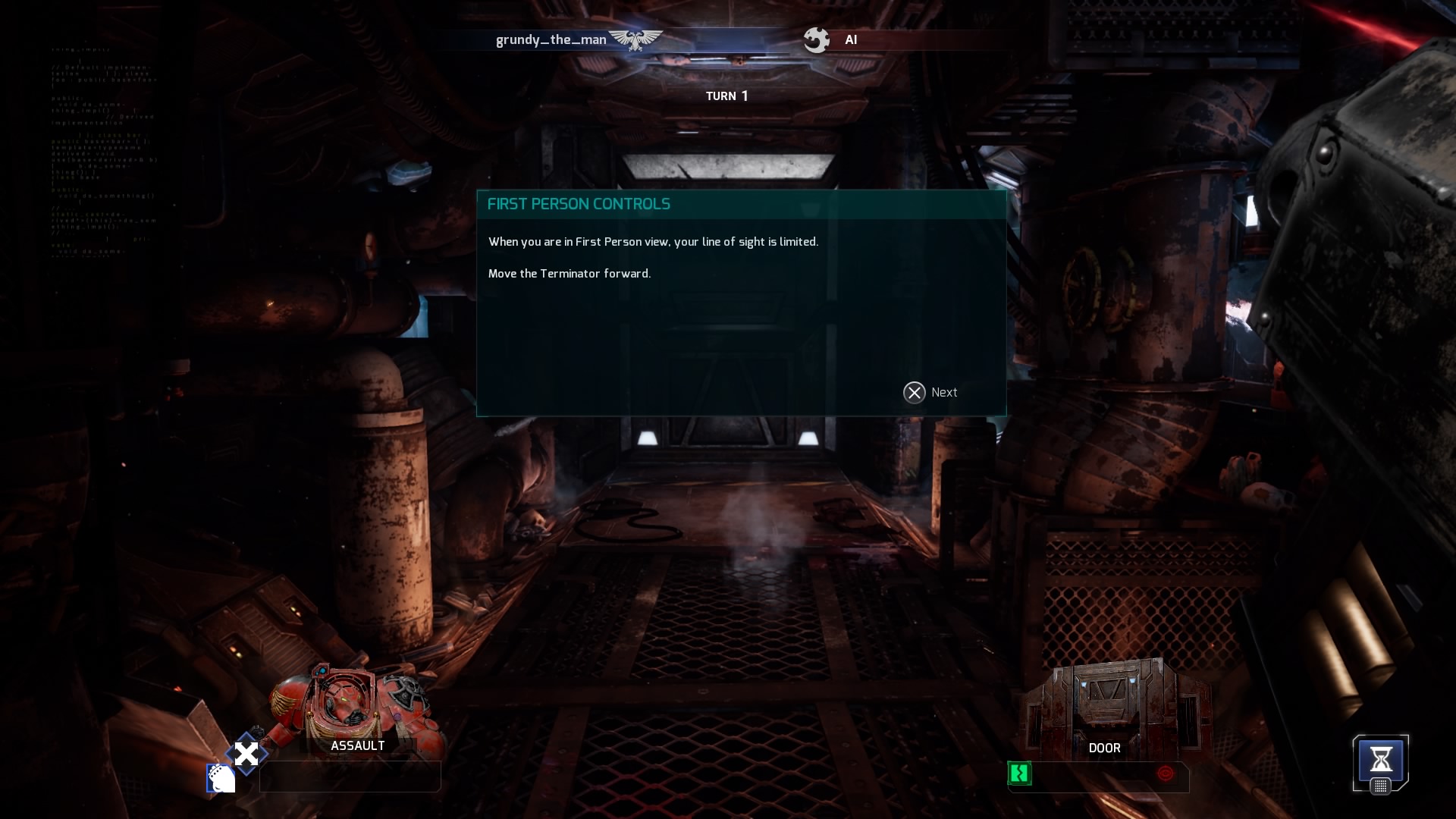
-
Space Hulk: Tactics Review
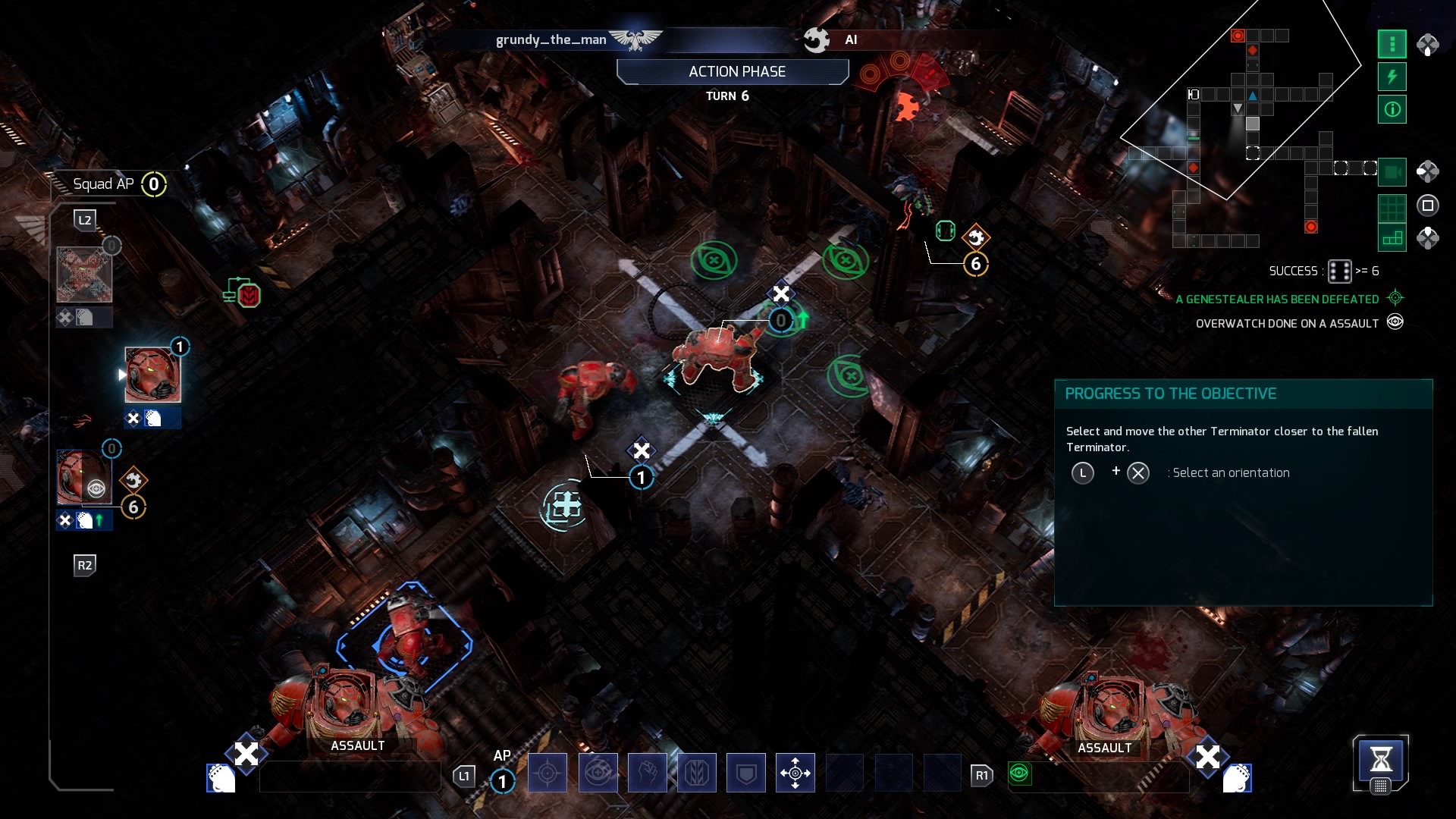
-
Space Hulk: Tactics Review
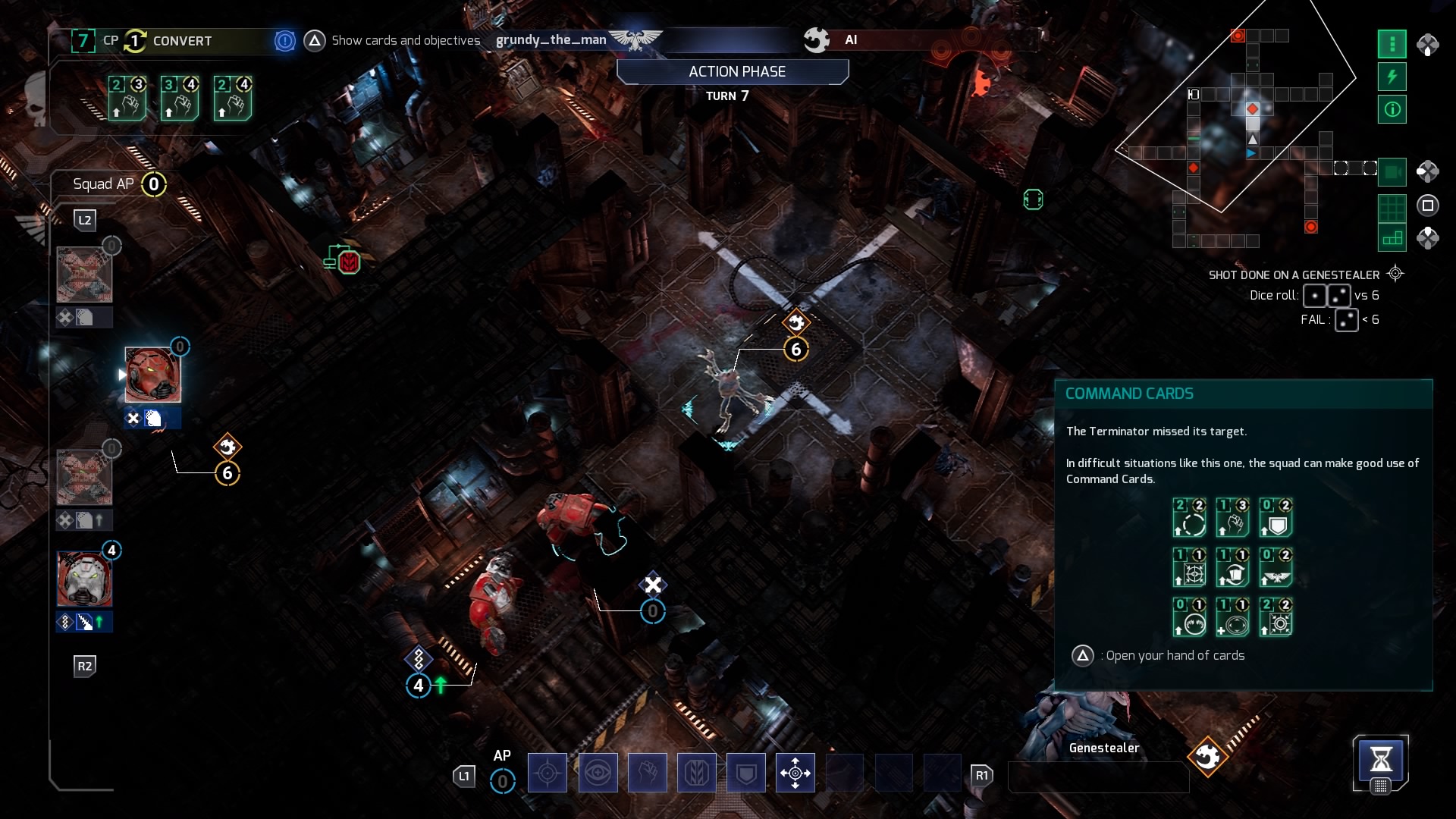
-
Space Hulk: Tactics Review
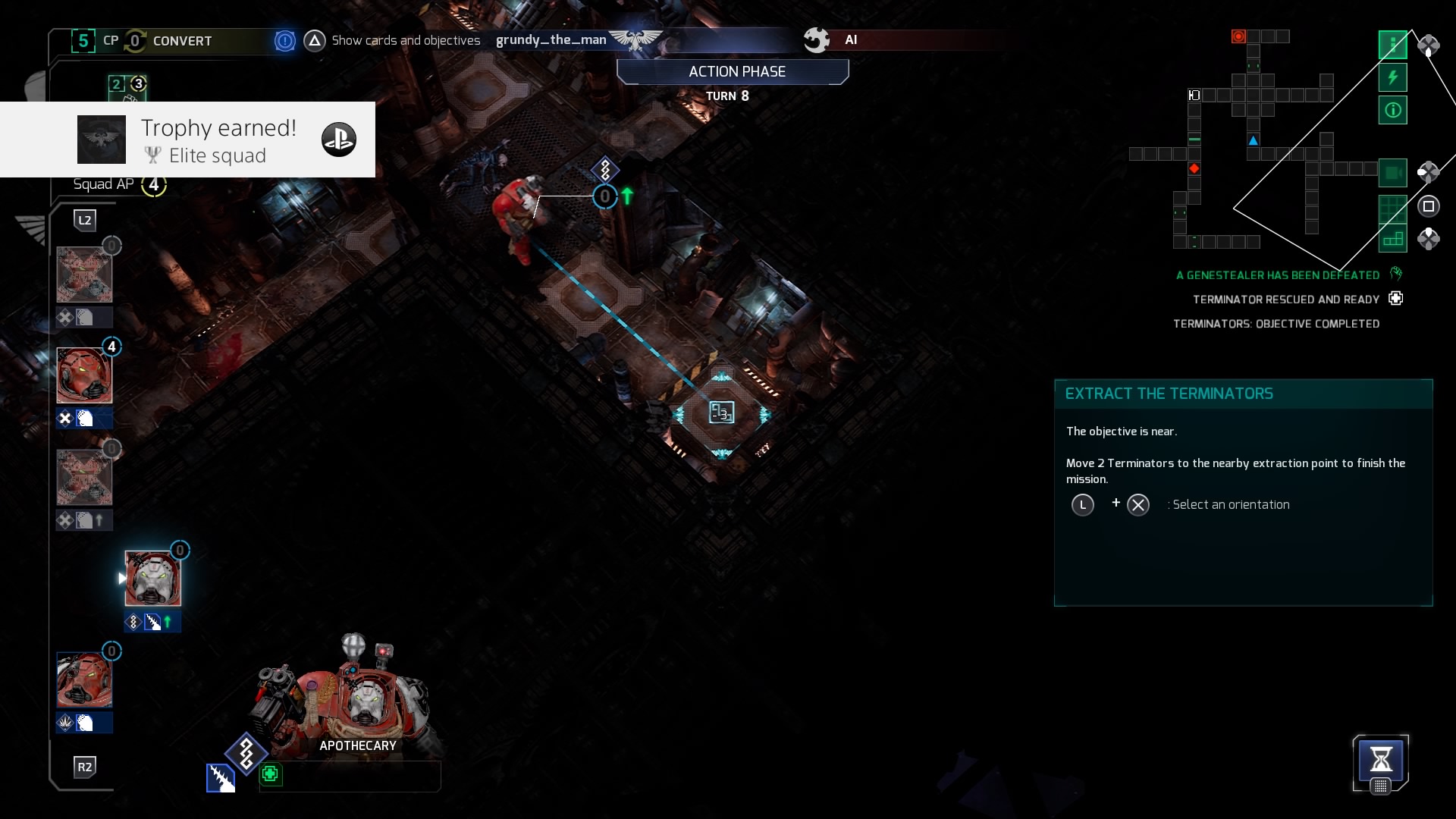
-
Space Hulk: Tactics Review
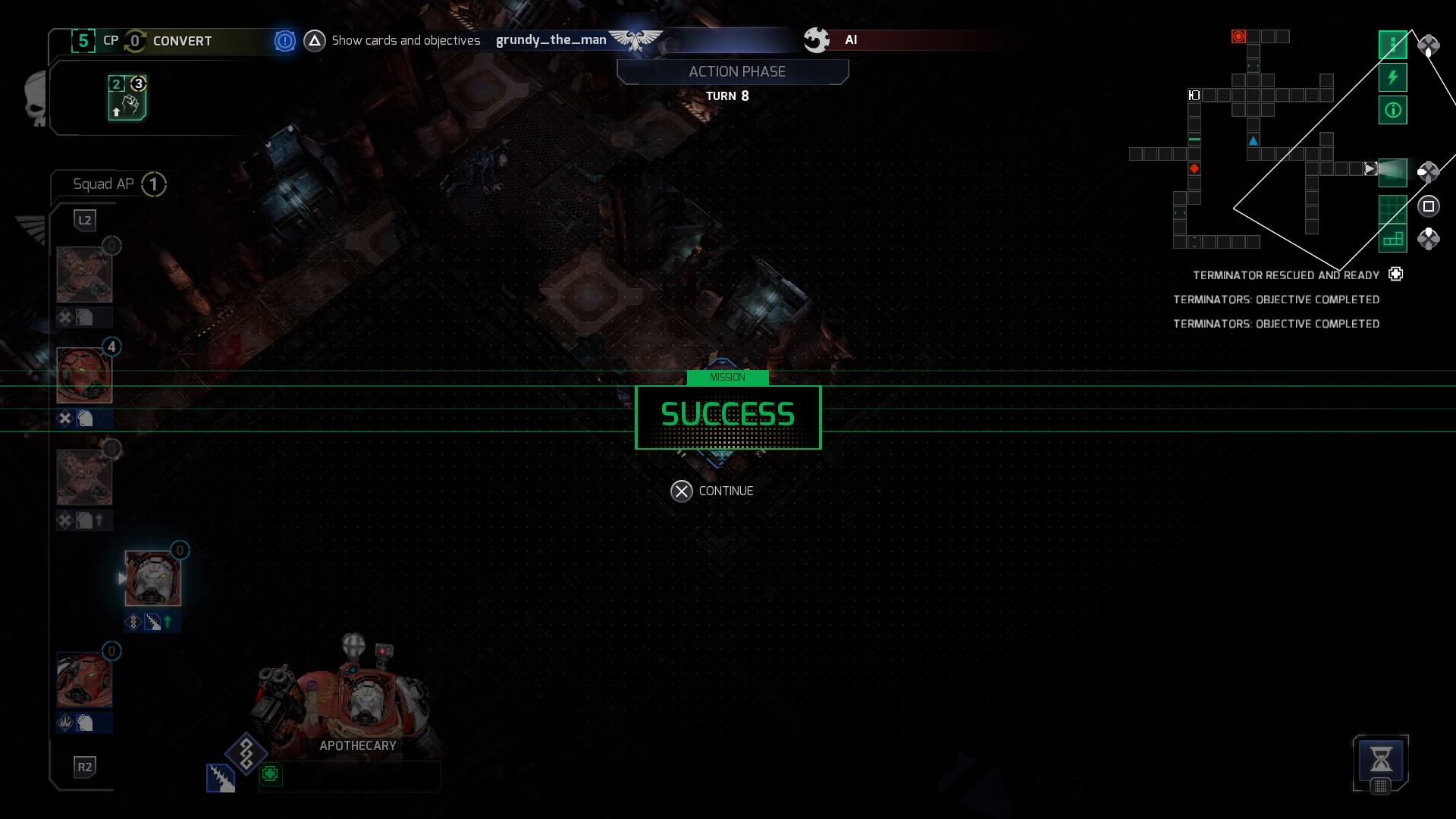
-
Space Hulk: Tactics Review
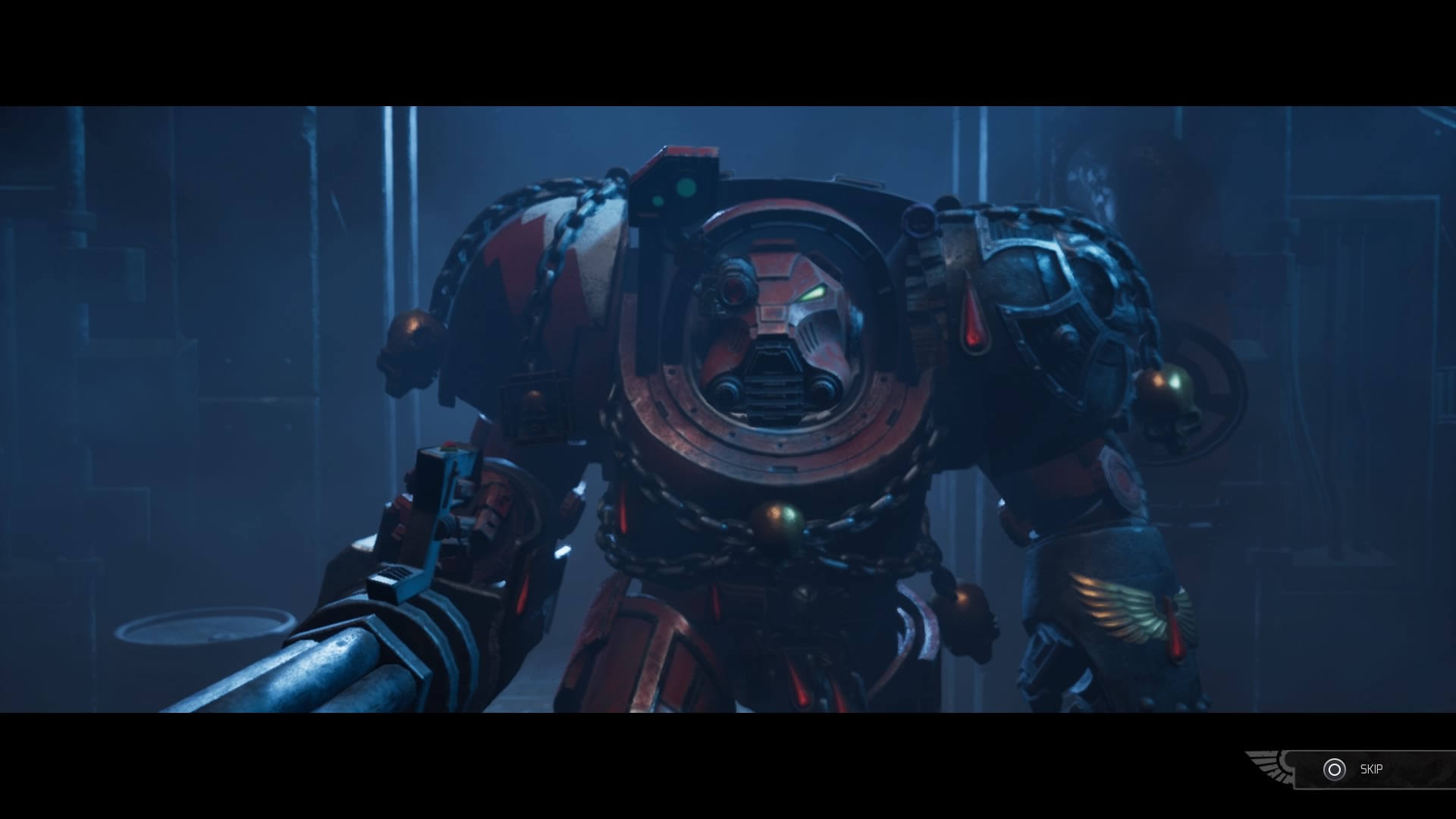
-
Space Hulk: Tactics Review
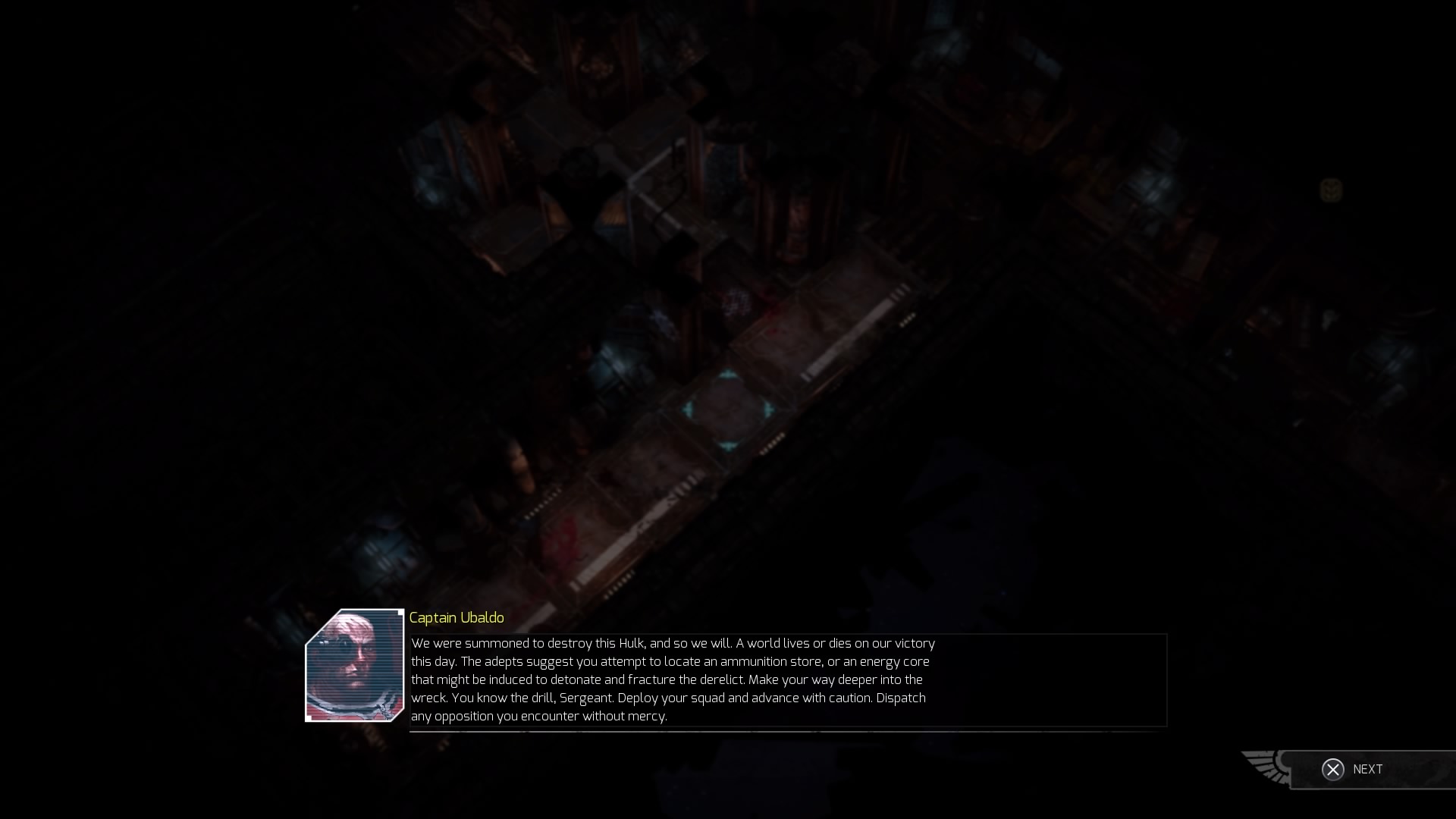
-
Space Hulk: Tactics Review
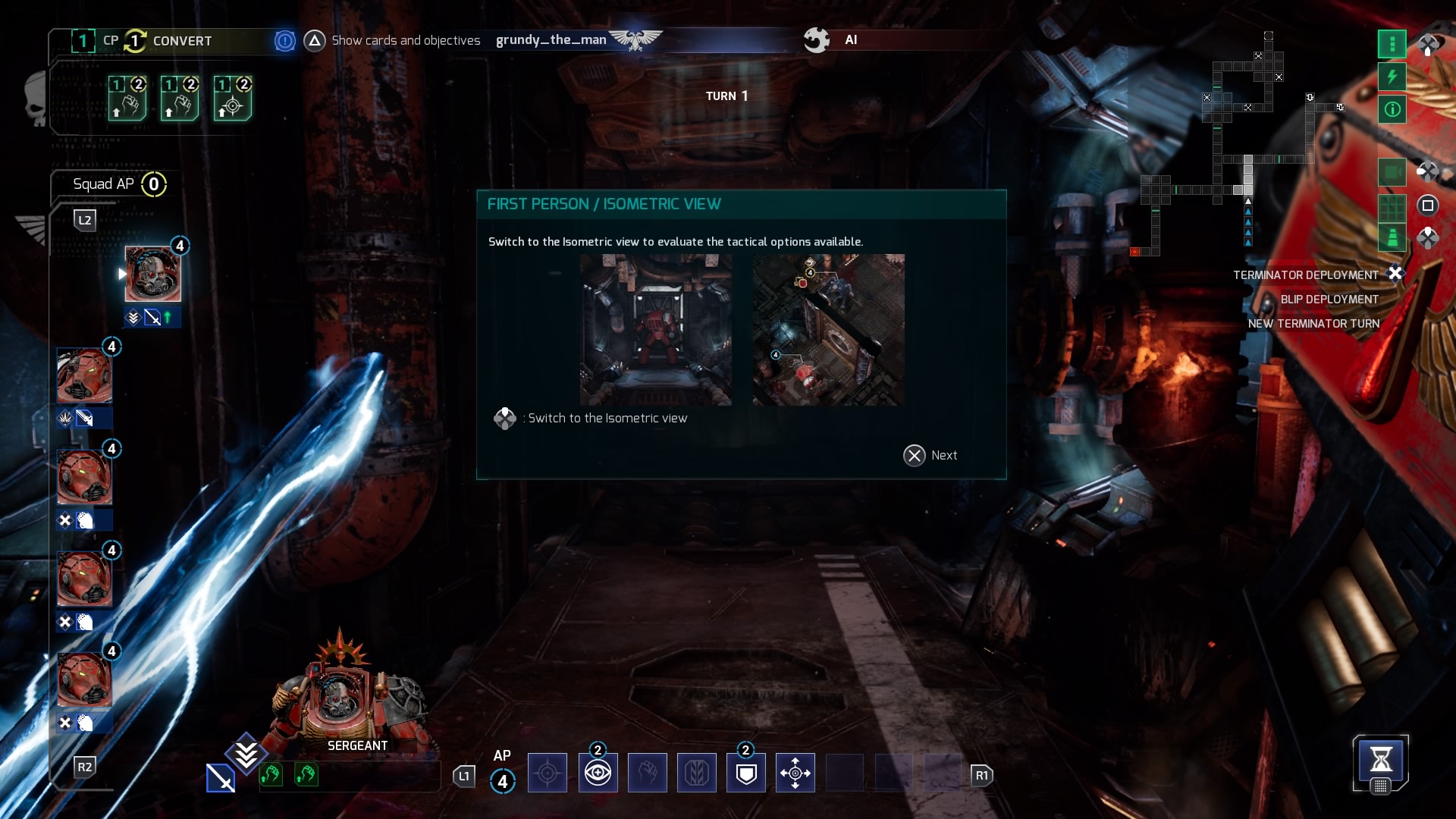
-
Space Hulk: Tactics Review
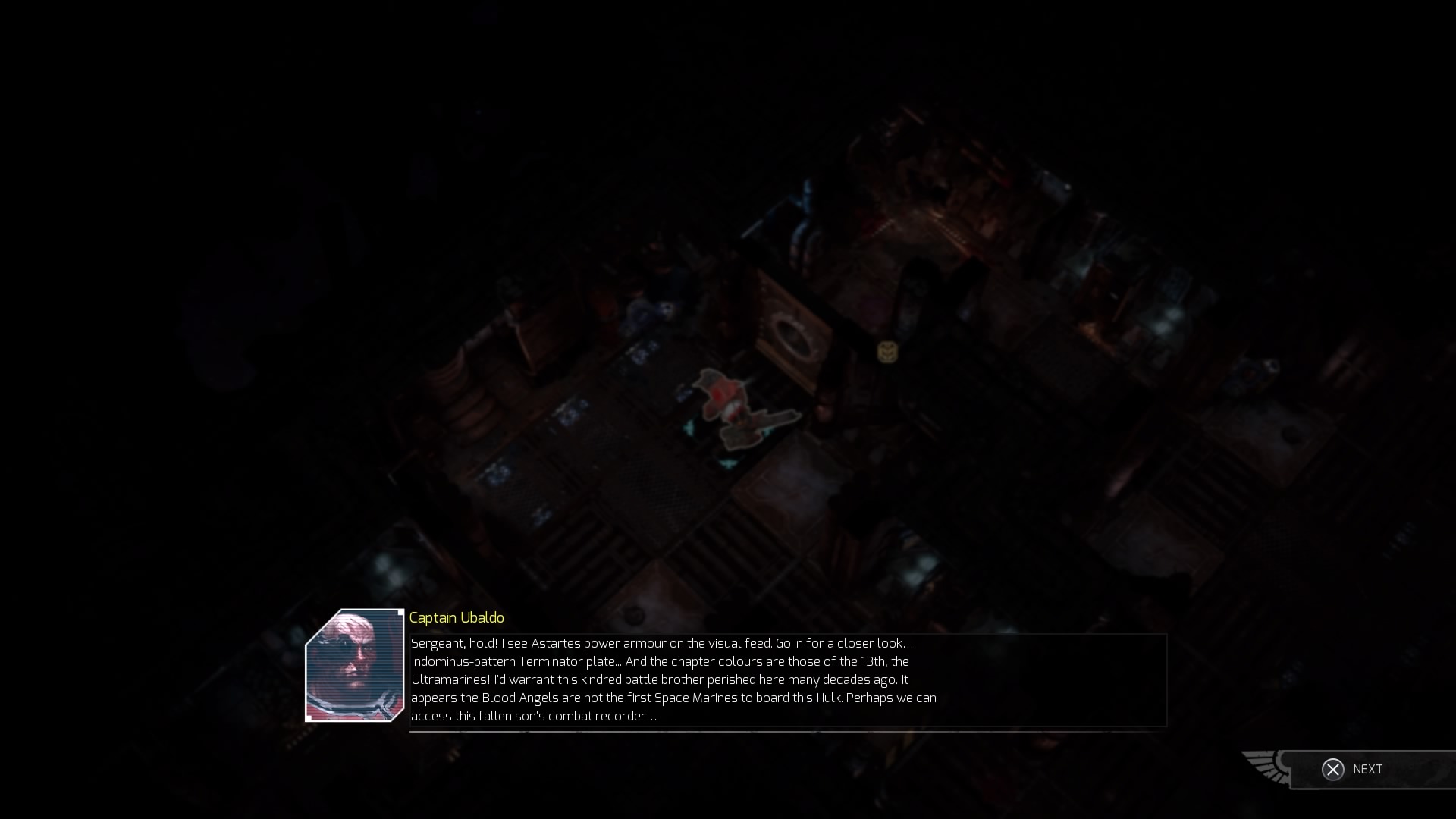
-
Space Hulk: Tactics Review
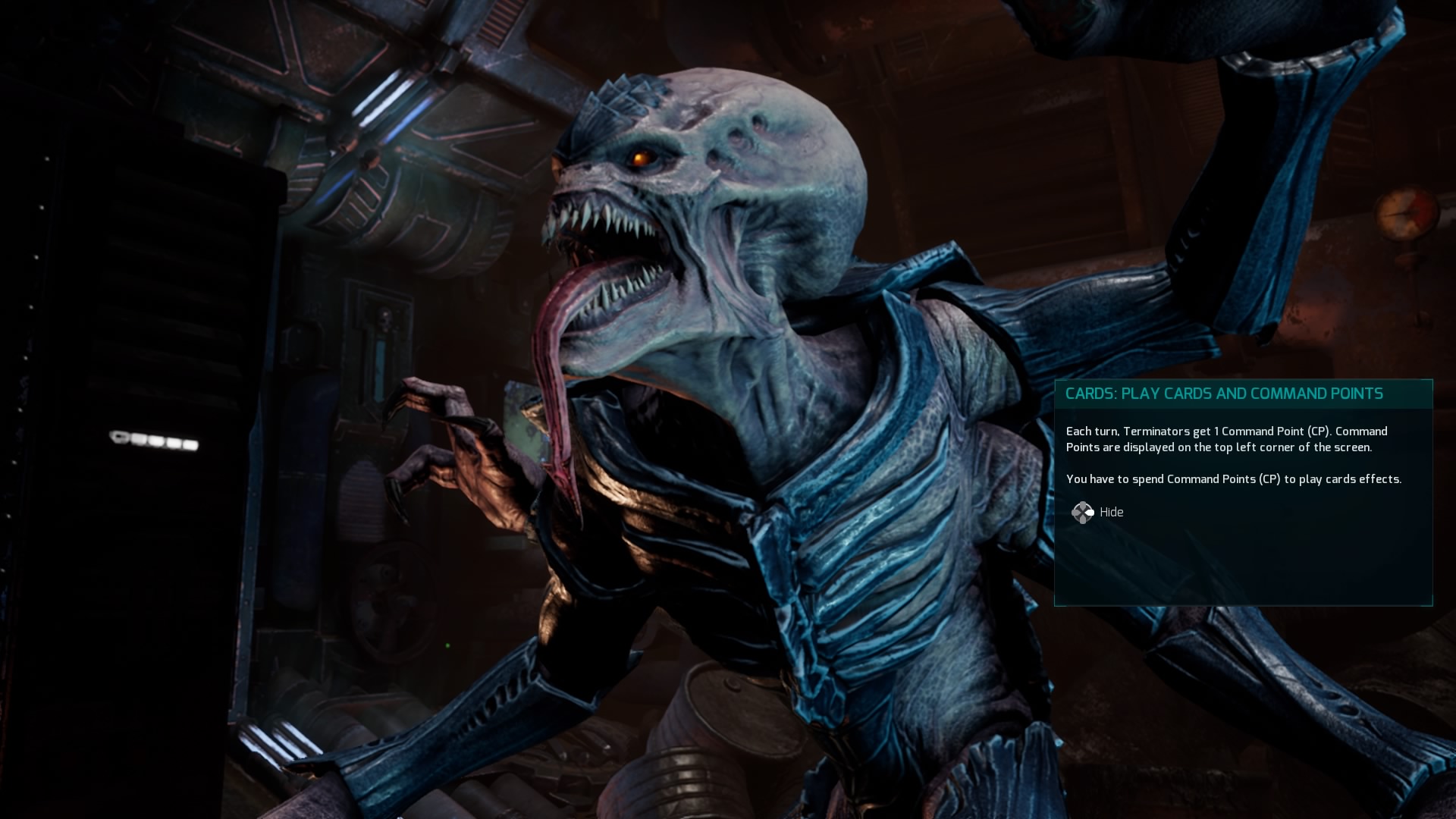
-
Space Hulk: Tactics Review
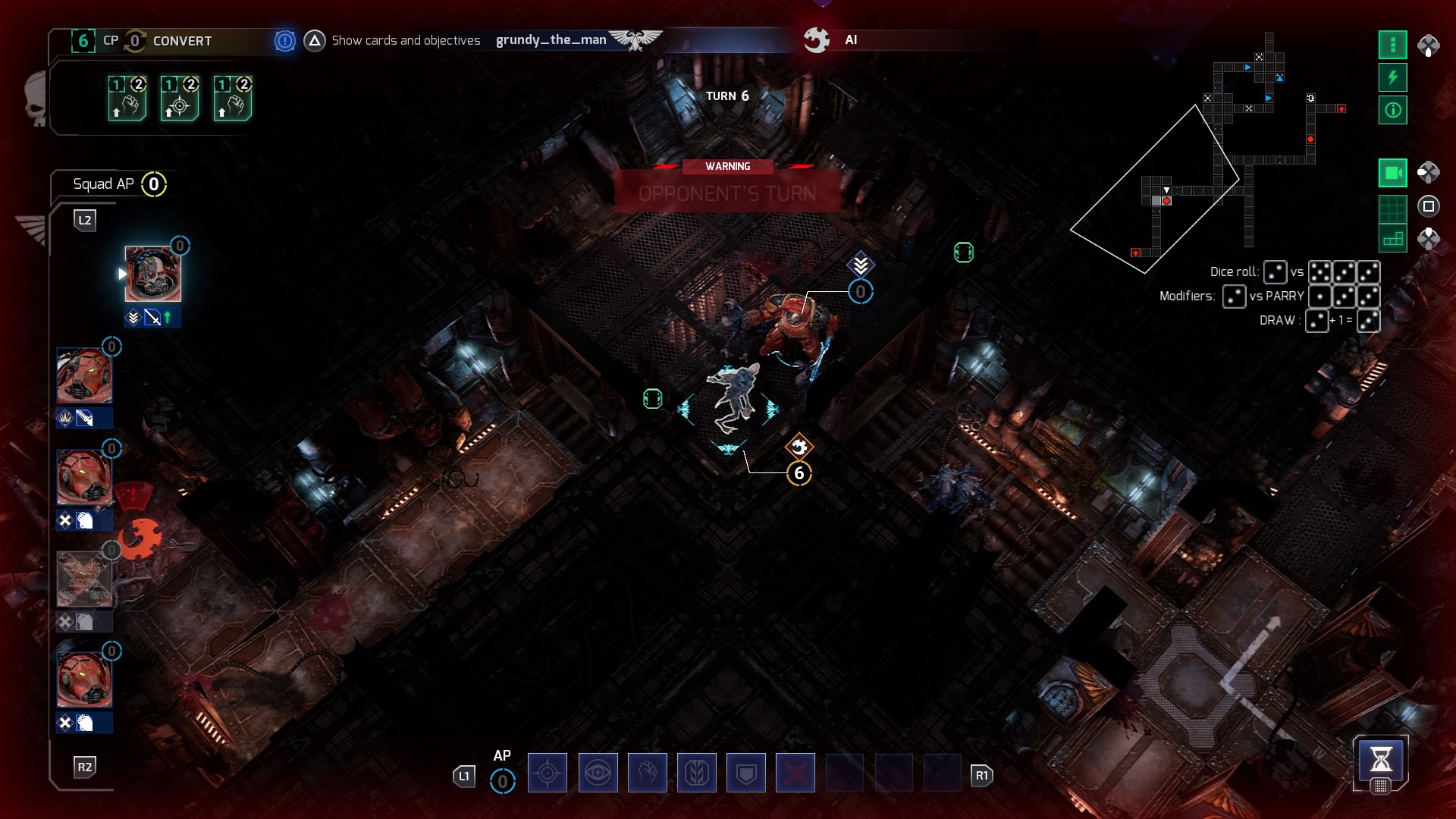
-
Space Hulk: Tactics Review
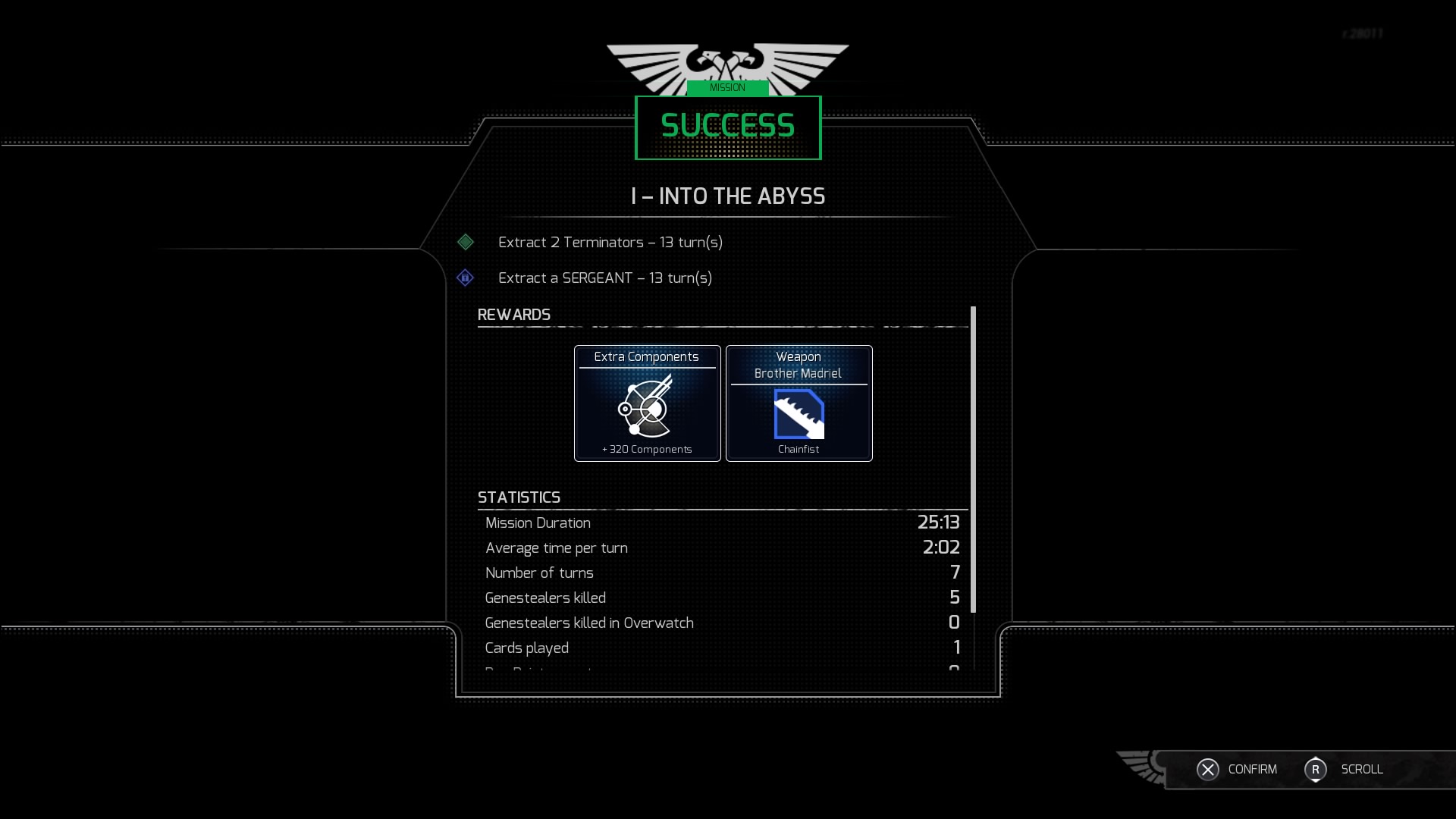
-
Space Hulk: Tactics Review
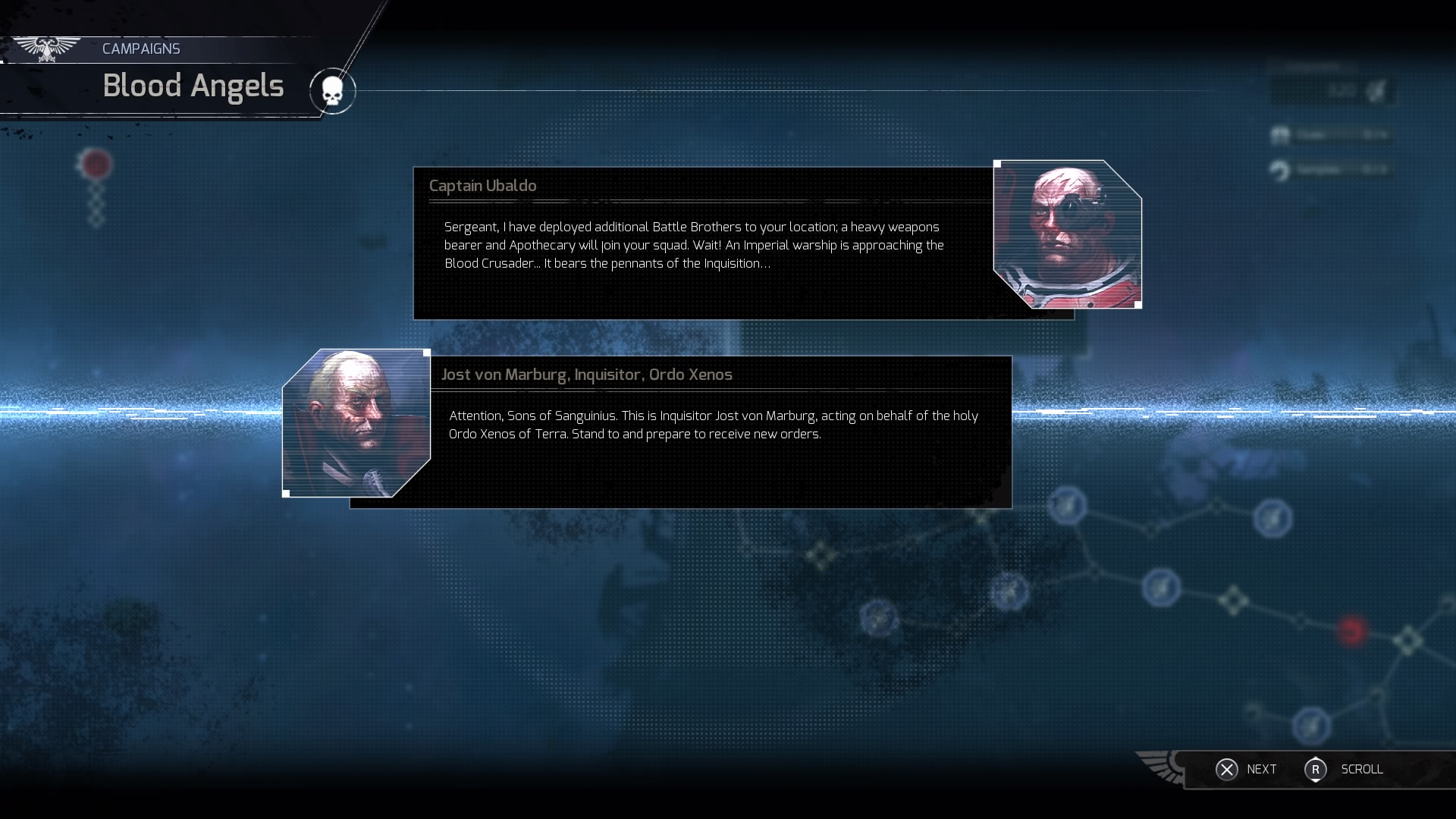
-
Space Hulk: Tactics Review
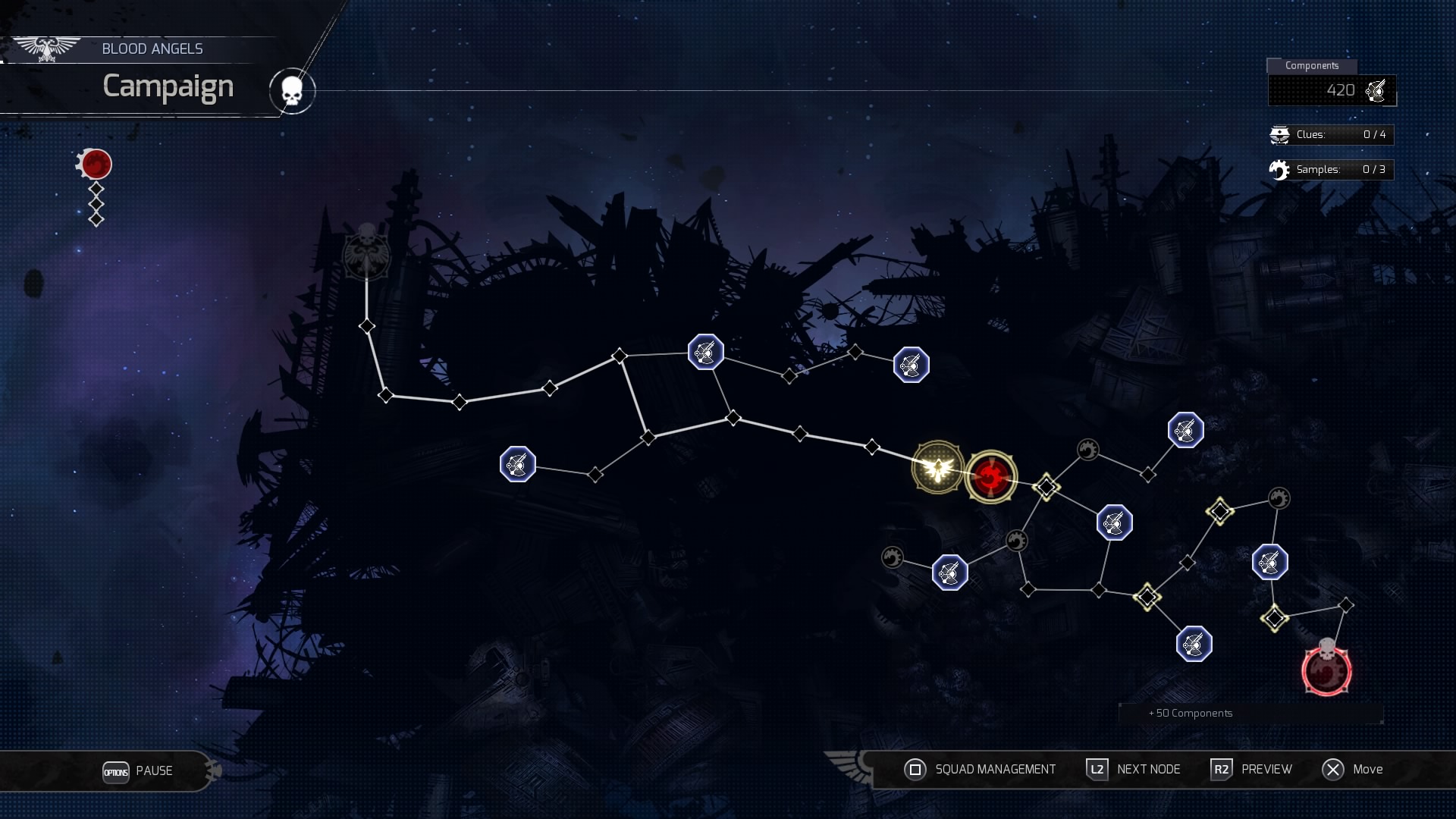
-
Space Hulk: Tactics Review
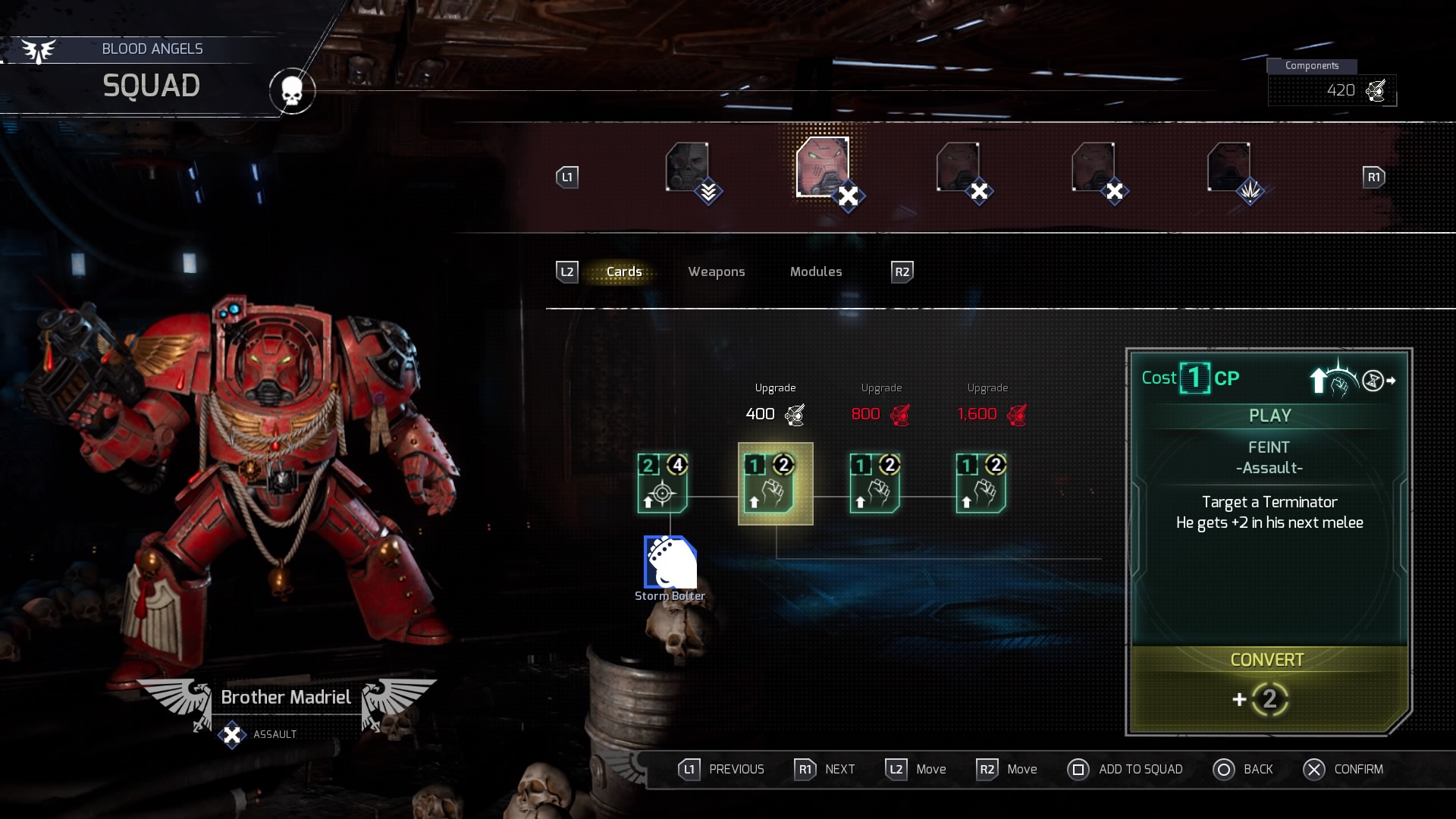
-
Space Hulk: Tactics Review
